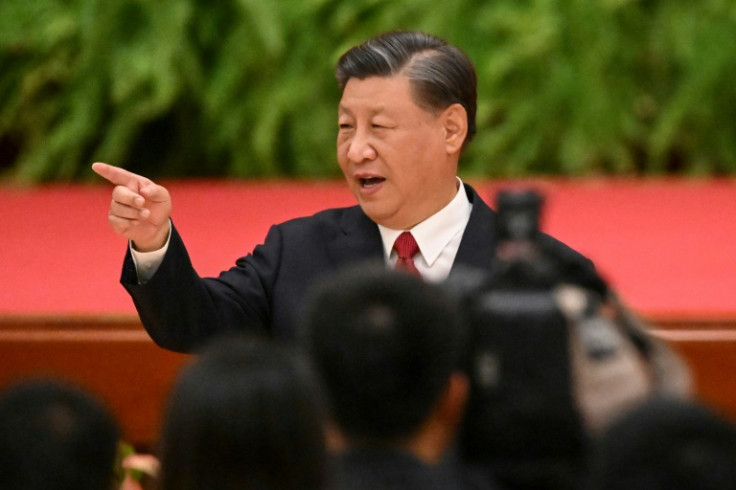Trump Invites China's Xi To Inauguration But Here Is Why He's Unlikely To Attend

KEY POINTS
- China's ambassador to the U.S. and his wife are expected to attend the event
- Chinese officials are reportedly wondering what Trump's true intentions are for the invite
- Xi and Trump's relationship crumbled during the first Trump regime amid cold wars on tech and trade
Chinese President Xi Jinping is not expected to travel over 7,500 miles to attend U.S. President-elect Donald Trump's inauguration as a guest.
Karoline Leavitt, who it set to be Trump's incoming press secretary, confirmed on Thursday that the President-elect had invited Xi to the January 20th event.
But experts say it would be too risky for the Communist leader to attend.
"Can you imagine Xi Jinping sitting outdoors in Washington, D.C., in January at the feet of the podium, surrounded by hawkish members of Congress, gazing up at Donald Trump as he delivers his inaugural address?" Danny Russel, who previously served as assistant secretary of state for East Asian and Pacific affairs, told the Associated Press.
Who Will Attend in Xi's Place?
Instead of Xi, Chinese ambassador to the U.S. Xie Feng and his wife are expected to attend the event, CBS News reported.
Sources told the outlet that other Chinese officials may also attend.
Earlier in the day, Trump said his administration has "a good relationship with China," and the transition team has been discussing "some things" with the Chinese leader.
CBS reported that Chinese officials were wondering what the Republican leader's motives were for inviting Xi.
U.S. State Department records show that no Chinese head of state has attended the U.S. inauguration since the late 1800s, and it has been the long-standing practice in Beijing to send its U.S. ambassadors to American inaugurations.
It is expected that some other foreign leaders China's leader has had issues with may attend the event, and it could put Beijing's views over certain things in question.
Trump and Xi's Rollercoaster Ride
During the early years of the first Trump presidency, the two leaders appeared to have formed a good relationship.
However, things started to crumble as the two economic powerhouses engaged in a "cold war" over technological advancements and later, tariffs on various goods.
The breaking point was the Covid-19 pandemic when Trump repeatedly blamed the virus's spread on China. Since then, pandemic blame game and the tit-for-tat trade tariffs, Beijing repeatedly said the U.S. was trying to restrain its inevitable growth.
With Trump's re-entry into the White House, it is unclear how relations between the economic giants will fare.
Trump 2.0 is faced with a bolder and bigger Xi, while Xi is faced with some Trump cabinet members like Marco Rubio, who have made it clear they are hawkish on Beijing.
© Copyright IBTimes 2024. All rights reserved.






















